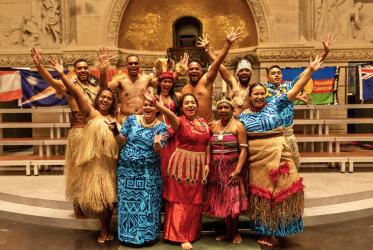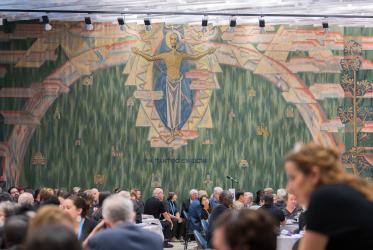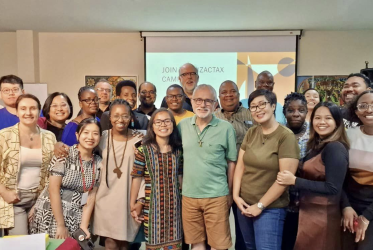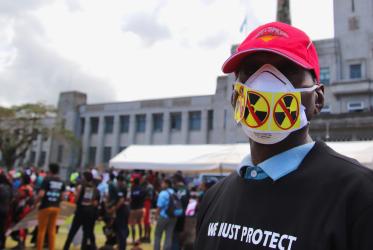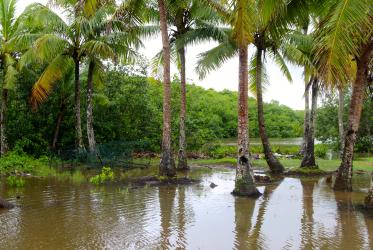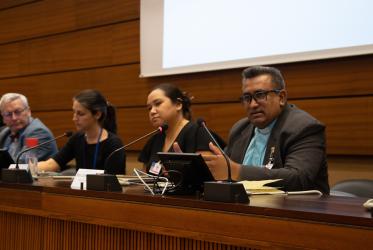Displaying 21 - 40 of 791
Pacific Conference of Churches prepares for 12th General Assembly
15 November 2023
World Council of Churches plans pilgrimage to Marshall Islands
09 November 2023
Greetings pour in to commemorate WCC’s 75th anniversary
22 September 2023
Churches march in New York City to declare no faith in fossil fuels
18 September 2023
GEM School explores how to make new economic world order a reality
08 September 2023
Pacific churches call for Japan to halt wastewater dump
29 August 2023
Le Pacifique, la force d’une région
11 July 2023

